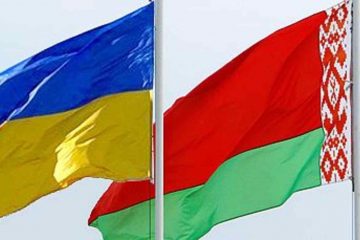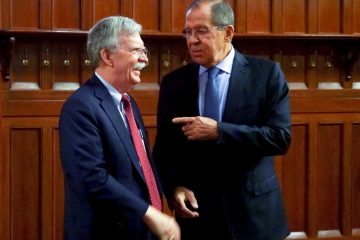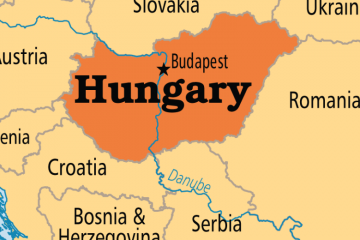Crisis in Ukraine Underscores Opposing Lessons of Cold War
By ALISON SMALE
MUNICH — The Cold War is history, but its spirit this weekend stalked the security conference held here each winter for the past 51 years.
Chancellor Angela Merkel of Germany and Senator John McCain drew very different lessons from the West’s 20th-century showdown with the Soviet Union, as they clashed over whether to arm Kiev’s troops in response to Russian aggression in eastern Ukraine. That disagreement represents one of the sharpest rifts yet over how the allies should respond to the current challenge from Moscow.
Europe is very different from the days when the militaries of NATO and the Soviet bloc stared each other down. But the crisis in Ukraine has reopened familiar differences as to whether the threat of force — in this case, Washington’s readiness to bolster Ukraine’s military against pro-Russian rebels backed by the Kremlin — is more effective than months of so-far failed negotiations.
It is not quite Winston Churchill’s choice of “jaw-jaw” or “war-war.” Everyone agreed that a negotiated solution is the preferred outcome. Secretary of State John Kerry, addressing the conference on Sunday, insisted therefore that the West is united.
Ms. Merkel travels to Washington for talks on Monday with President Obama, who is said to be undecided on whether to provide Ukraine with anti-tank artillery and an array of communications and other equipment, which some American officials say could enable Ukraine to build and hold a line against pro-Russian forces moving west in eastern Ukraine.
Diplomats will gather for more talks in Berlin on Tuesday. An additional summit of the leaders of France, Germany, Ukraine and Russia is to be held in Minsk, Belarus, on Wednesday.
Speaking in Sochi, Russia, President Vladimir V. Putin of Russia said that a Wednesday meeting would require agreement between Russia and the West on key points beforehand. A meeting then is possible if “we are able to agree on a number of points that we’ve recently been discussing intensely,” he said.
On Sunday, Mr. Kerry issued a statement of support for the European efforts, but noted that Washington is concerned by new reports of “fierce fighting today in Debaltseve and Mariupol, and press references to new Russian convoys into eastern Ukraine.”
Germany’s foreign minister, Frank-Walter Steinmeier, spoke Saturday of the real danger of a new division in Europe and a “parting of the ways” with Mr. Putin if negotiations fail.
Laurent Fabius, foreign minister of France, was firm on Sunday that “what we must seek right now is not peace on paper but peace on the ground.”
That echoed comments by Vice President Joseph R. Biden Jr., who recalled the many hours he had spent trying to end the conflict.
“Don’t tell us. Show us, President Putin,” he said Saturday. “Too many times President Putin has promised peace and delivered tanks, weapons.”
Mr. Putin’s view has been that the crisis in Ukraine, far from being a violation of international law, has been caused by a peremptory West eager to impose its way on Russia. Accordingly, his foreign minister, Sergey V. Lavrov, delivered a speech brimming with Cold War-style bromides at the alleged strength of fascists in Ukraine, or Kiev’s supposed mistreatment of ethnic Hungarian minorities, which the Russians have cited as causes for them to support the rebels.
Emotion is sometimes rare in international diplomacy, but was very much present in the public and private discourse here all weekend.
Unusually, Ms. Merkel offered up a memory of her childhood in Communist East Germany in reply to Malcolm Rifkind, a former British foreign and defense secretary, who questioned whether the diplomacy she has pursued in the Ukraine crisis was effective without a threat of force.
“Look,” said Ms. Merkel, who, like President François Hollande of France, had just returned from hours of negotiations with Mr. Putin, “I grew up in East Germany, and when I was 7 the Berlin Wall was built.”
Nobody expected the West to mount a military attack to bring it down, she said, meaning that East Germans waited 28 more years in “dictatorship and unfreedom” until the Wall came down in November 1989.
She did not begrudge the West, Ms. Merkel said. But she implied that it informed her idea that “I do not believe that the advances Ukraine needs will be achieved with weapons.”
Senator McCain, Republican of Arizona, in remarks on Saturday and a speech on Sunday, rebuffed the chancellor, despite German complaints about his tone while in the country she heads.
“Asserting that there is no military solution, which is a truism, should not lead us to believe that there is no military dimension to the problem — or that hard power can play no role in a favorable solution,” Mr. McCain told the conference.
Responding to Ms. Merkel’s Berlin Wall story, Mr. McCain said Saturday, “What I particularly took exception to was Chancellor Merkel comparing this situation with that during the Cold War.”
Hundreds of thousands of Americans had defended West Germany, and “when Berlin was surrounded, we sent in an airlift,” he said, recalling the mission that broke the Soviet blockade of Berlin in the late 1940s. “We didn’t say, ‘Hey, we don’t want to provoke the Russians.’ So I just take strong exception to that comparison.”
He said the Soviets were kept at bay during the Cold War by “the price they would have to pay for their aggression, and right now there is no price that Putin is paying for his aggression.”
Mr. McCain’s view contrasted with the vision of Mr. Steinmeier, who emphasized the need for a peaceful end to the conflict through negotiations.
“It would be irresponsible not to use the opportunities we have,” Mr. Steinmeier said.
He spoke broadly of a new “security model” that might restore trust with Russia, an idea that seems distant as death and misery spreads in eastern Ukraine.
The German foreign minister recalled that a Canadian colleague at a NATO meeting last summer had asked whether Russia should be seen as “a friend, partner, enemy or opponent to us.”
“Perhaps,” Mr. Steinmeier said, “this is easier to answer when you are further away from the conflict region. Our experience in Europe — in good times or bad — is that Russia remains our neighbor.”
It was an observation steeped in decades of Ostpolitik, Germany’s policy of détente with Eastern Europe, forged by German Social Democrats like Mr. Steinmeier.
Ms. Merkel, a center-right Christian Democrat, governs in coalition with the Social Democrats, another factor influencing her Ukraine policy, in which the two politicians from opposing camps have so far been able to keep the support of most Germans.
President Petro O. Poroshenko of Ukraine said Sunday that any Minsk meeting should result in a durable and effective cease-fire in his country. European and American leaders expressed hope that their unity, and not their differences, would prevail.
“We have to stick together and we have to negotiate,” Mr. Fabius said, “but not agree to concessions that would undermine the key pillars of European security. It is the time to make a choice.”





Comments